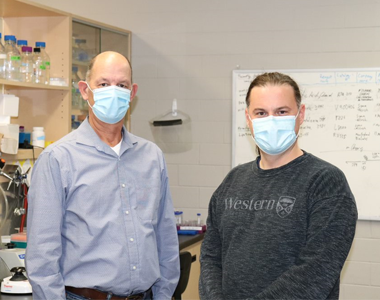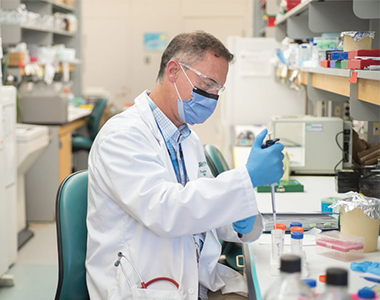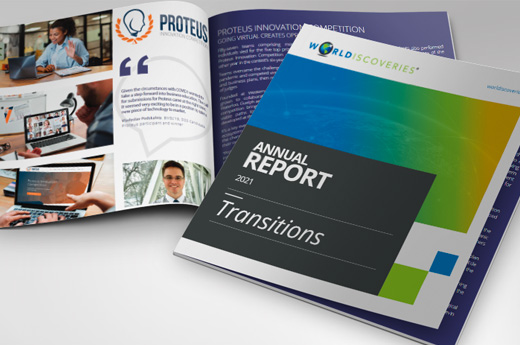The Western Medical Innovation Fellowship (MIF) immerses talented young scientists, engineers and clinicians in training and research environments that build innovation leaders and create novel medical technologies. To kickoff the 2020/21 program, the fellows participated in a virtual bootcamp in collaboration with the University of Minnesota. Due to travel restrictions imposed by the pandemic, the fellows had to pivot and access the bootcamp programing virtually.
Later, the fellows consulted with clinicians across the local healthcare industry and developed two projects to address needs they discovered that fit within their areas of expertise.
One of the projects was teleMDview, a technology they developed that provides tele-rehabilitation clinicians with a simultaneous multi-view of their patients. The other project was titled Tenomix, which harnesses the power of medical imaging and automation to improve inefficiencies in the colon cancer-staging pipeline. Their solutions aim to optimize care, reduce costs, better inform treatment decisions, and improve patient outcomes. The fellows showcased these projects in five pitch competitions, taking home several thousand dollars in prizes.
Entering its seventh cohort in Fall 2021, the Western Medical Innovation Fellowship – in partnership with Western’s BrainsCAN – attracted eight talented scientists, engineers, and clinicians to take part in the intense 10.5-month program. Due to continued travel restrictions WORLDiscoveries delivered our homegrown 3 week long boot camp in person at Western, attracting local experts and entrepreneurs to take part in the program. Clinical immersion will again be mostly virtual, however, with pandemic restrictions easing, in-person clinical immersion has been possible.
Western’s BrainsCAN initiative committed more than $3.5 million over seven years to the program, along with MITACS and the Western Bone and Joint Institute’s Collaborative Training Program in Musculoskeletal Health Research.
The program’s purpose is to shape inventive and capable leaders that develop novel medical technologies that solve complex problems faced in healthcare. In a world transformed by the pandemic – this program is now more vital than any other time.
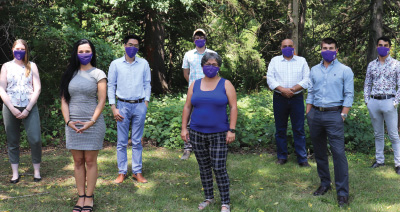 From L to R: Eveline Pasman went on to join the MIF as Interim Director and is Founder and CMO of Tenomix, a MIF spinoff company, Sheyla Abdic is searching for a residency program, Gordon Ngo continues to be a resident physician, Kirill Fedorov is exploring career opportunities, Sherif Abdou became interim General Manager at the Additive Manufacturing Innovation Centre at Mohawk College, Michael Lavdas became Director of Engineering at a medical device company and Saumik Biswas is Founder and CEO of Tenomix.
From L to R: Eveline Pasman went on to join the MIF as Interim Director and is Founder and CMO of Tenomix, a MIF spinoff company, Sheyla Abdic is searching for a residency program, Gordon Ngo continues to be a resident physician, Kirill Fedorov is exploring career opportunities, Sherif Abdou became interim General Manager at the Additive Manufacturing Innovation Centre at Mohawk College, Michael Lavdas became Director of Engineering at a medical device company and Saumik Biswas is Founder and CEO of Tenomix.
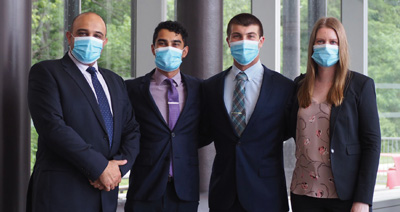 For the culmination of their work through the 10.5-month program, Sherif Abdou, Saumik Biswas, Michael Lavdas and Eveline Pasman have launched a startup for one of their program projects. Tenomix will help commercialize a bench-top robotic scanning device that can automate the detection of lymph nodes in resected colorectal cancer tissues. The nascent company just received six-figure funding from FACIT, a commercialization venture firm that builds companies with entrepreneurs to accelerate oncology innovation in Ontario.
For the culmination of their work through the 10.5-month program, Sherif Abdou, Saumik Biswas, Michael Lavdas and Eveline Pasman have launched a startup for one of their program projects. Tenomix will help commercialize a bench-top robotic scanning device that can automate the detection of lymph nodes in resected colorectal cancer tissues. The nascent company just received six-figure funding from FACIT, a commercialization venture firm that builds companies with entrepreneurs to accelerate oncology innovation in Ontario.
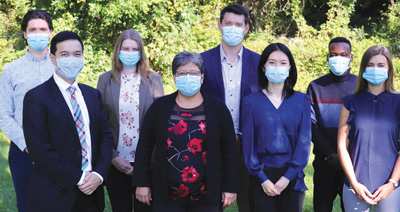 The 2021/22 cohort is comprised of seven fellows. From L to R: Malcolm Eaton holds a PhD in Biochemistry and Molecular Biology, Jeffrey Poon is a resident physician, Oleksiy Zaika is a PhD Candidate in Anatomy & Cell Biology, Xinyi Li has a PhD in Biomedical Engineering, Olumide Olotu holds an MD, Sydney Robinson has an MESc in Biomedical Engineering and Valentin Lyashenko holds a BEng in Chemical Engineering and Computer Science.
The 2021/22 cohort is comprised of seven fellows. From L to R: Malcolm Eaton holds a PhD in Biochemistry and Molecular Biology, Jeffrey Poon is a resident physician, Oleksiy Zaika is a PhD Candidate in Anatomy & Cell Biology, Xinyi Li has a PhD in Biomedical Engineering, Olumide Olotu holds an MD, Sydney Robinson has an MESc in Biomedical Engineering and Valentin Lyashenko holds a BEng in Chemical Engineering and Computer Science.
Read more

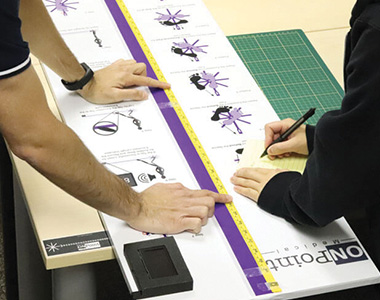

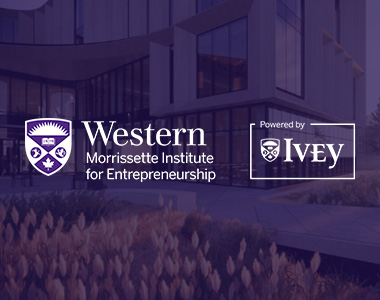

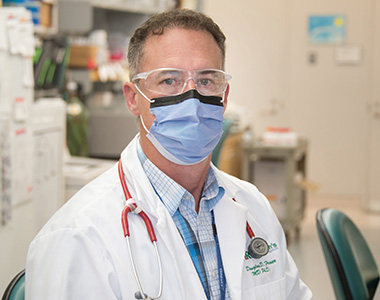
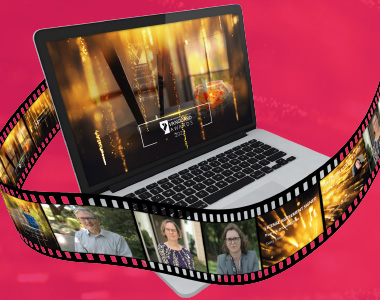
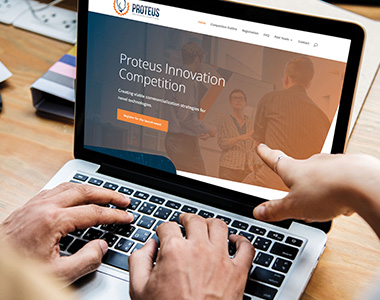
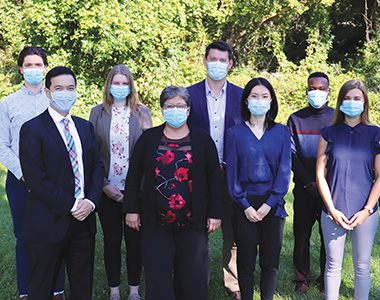
 From L to R: Eveline Pasman went on to join the MIF as Interim Director and is Founder and CMO of Tenomix, a MIF spinoff company, Sheyla Abdic is searching for a residency program, Gordon Ngo continues to be a resident physician, Kirill Fedorov is exploring career opportunities, Sherif Abdou became interim General Manager at the Additive Manufacturing Innovation Centre at Mohawk College, Michael Lavdas became Director of Engineering at a medical device company and Saumik Biswas is Founder and CEO of Tenomix.
From L to R: Eveline Pasman went on to join the MIF as Interim Director and is Founder and CMO of Tenomix, a MIF spinoff company, Sheyla Abdic is searching for a residency program, Gordon Ngo continues to be a resident physician, Kirill Fedorov is exploring career opportunities, Sherif Abdou became interim General Manager at the Additive Manufacturing Innovation Centre at Mohawk College, Michael Lavdas became Director of Engineering at a medical device company and Saumik Biswas is Founder and CEO of Tenomix. For the culmination of their work through the 10.5-month program, Sherif Abdou, Saumik Biswas, Michael Lavdas and Eveline Pasman have launched a startup for one of their program projects. Tenomix will help commercialize a bench-top robotic scanning device that can automate the detection of lymph nodes in resected colorectal cancer tissues. The nascent company just received six-figure funding from FACIT, a commercialization venture firm that builds companies with entrepreneurs to accelerate oncology innovation in Ontario.
For the culmination of their work through the 10.5-month program, Sherif Abdou, Saumik Biswas, Michael Lavdas and Eveline Pasman have launched a startup for one of their program projects. Tenomix will help commercialize a bench-top robotic scanning device that can automate the detection of lymph nodes in resected colorectal cancer tissues. The nascent company just received six-figure funding from FACIT, a commercialization venture firm that builds companies with entrepreneurs to accelerate oncology innovation in Ontario. The 2021/22 cohort is comprised of seven fellows. From L to R: Malcolm Eaton holds a PhD in Biochemistry and Molecular Biology, Jeffrey Poon is a resident physician, Oleksiy Zaika is a PhD Candidate in Anatomy & Cell Biology, Xinyi Li has a PhD in Biomedical Engineering, Olumide Olotu holds an MD, Sydney Robinson has an MESc in Biomedical Engineering and Valentin Lyashenko holds a BEng in Chemical Engineering and Computer Science.
The 2021/22 cohort is comprised of seven fellows. From L to R: Malcolm Eaton holds a PhD in Biochemistry and Molecular Biology, Jeffrey Poon is a resident physician, Oleksiy Zaika is a PhD Candidate in Anatomy & Cell Biology, Xinyi Li has a PhD in Biomedical Engineering, Olumide Olotu holds an MD, Sydney Robinson has an MESc in Biomedical Engineering and Valentin Lyashenko holds a BEng in Chemical Engineering and Computer Science.